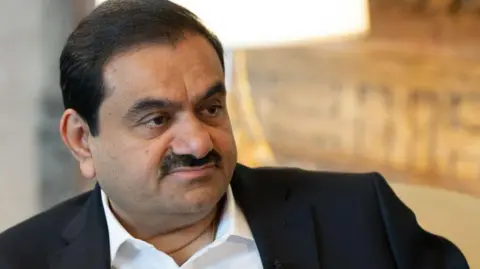Adani Rs 6,000 Cr Health Push with Mayo Clinic
In a move set to redefine India’s healthcare infrastructure, industrialist Gautam Adani has pledged Rs 6,000 crore to establish two integrated health cities in Ahmedabad and Mumbai. These Adani Health Cities (AHCs) will house 1,000-bed multi-specialty hospitals, medical colleges, and advanced research centres, with the project being led by the Adani Foundation. The initiative is part of the Rs 60,000 crore philanthropic commitment made by the Adani family on Gautam Adani’s 60th birthday. The ambitious project aims to bridge the gap in quality medical care, with a strong emphasis on affordability and accessibility across socio-economic segments. Partnering with Mayo Clinic, a global leader in healthcare, the venture seeks to integrate cutting-edge medical technology and artificial intelligence into its ecosystem, setting a new benchmark in Indian healthcare.
This initiative is expected to address India’s growing demand for quality medical services, particularly in urban areas struggling with overburdened public hospitals. The proposed medical colleges will have an annual intake of 150 undergraduate students, 80 residents, and 40 fellows, thereby fostering the next generation of medical professionals. This approach mirrors global trends where large-scale healthcare infrastructure is aligned with research and education, creating a self-sustaining model that benefits not just patients but also medical advancements. Furthermore, the Adani Group is eyeing expansion into other cities and towns, ensuring that world-class healthcare is not limited to metropolitan hubs. The group’s decision to collaborate with Mayo Clinic signals a commitment to maintaining international standards in both patient care and medical education, bringing India closer to global healthcare benchmarks.
A Sustainability-Driven Healthcare Revolution
The Adani Health Cities project is not merely a corporate social responsibility initiative but a long-term investment in sustainable healthcare infrastructure. The hospitals will be designed with green building standards, energy-efficient systems, and eco-friendly waste management to reduce their environmental footprint. With the healthcare sector being one of the largest contributors to carbon emissions due to extensive use of medical equipment and energy-intensive facilities, Adani’s approach focuses on sustainability without compromising on quality healthcare. The integration of artificial intelligence in diagnostics and patient care will not only improve efficiency but also minimise resource wastage. The project aims to create a model where high-end healthcare meets eco-conscious practices, setting a precedent for future medical infrastructure projects in India.
Civic and Urban Implications of India’s Expanding Healthcare Needs
The establishment of these state-of-the-art health cities comes at a crucial time when India is grappling with overcrowded hospitals, a shortage of trained doctors, and a growing urban population in need of better healthcare services. The ratio of doctors to patients in India remains below the World Health Organization’s recommended 1:1000 benchmark, highlighting the need for such initiatives. Mumbai and Ahmedabad, two of India’s fastest-growing cities, have seen increasing pressure on their public healthcare systems, making private investments in large-scale medical infrastructure crucial for urban development. By setting up research-oriented medical institutions alongside hospitals, the AHCs will not only enhance medical treatment but also reduce dependency on international healthcare institutions for advanced procedures.
With plans to replicate this model in multiple cities, the initiative could be a game-changer in making healthcare accessible beyond India’s metro cities. This reflects a broader global trend where urban health planning is now being integrated with economic development and sustainability goals, ensuring long-term benefits for city residents. If successfully implemented, this could pave the way for similar projects by other corporates, turning India into a hub for medical education, research, and affordable world-class healthcare.


